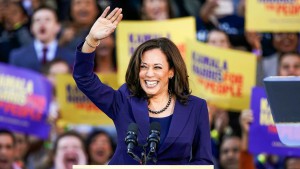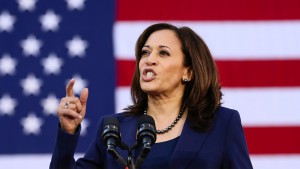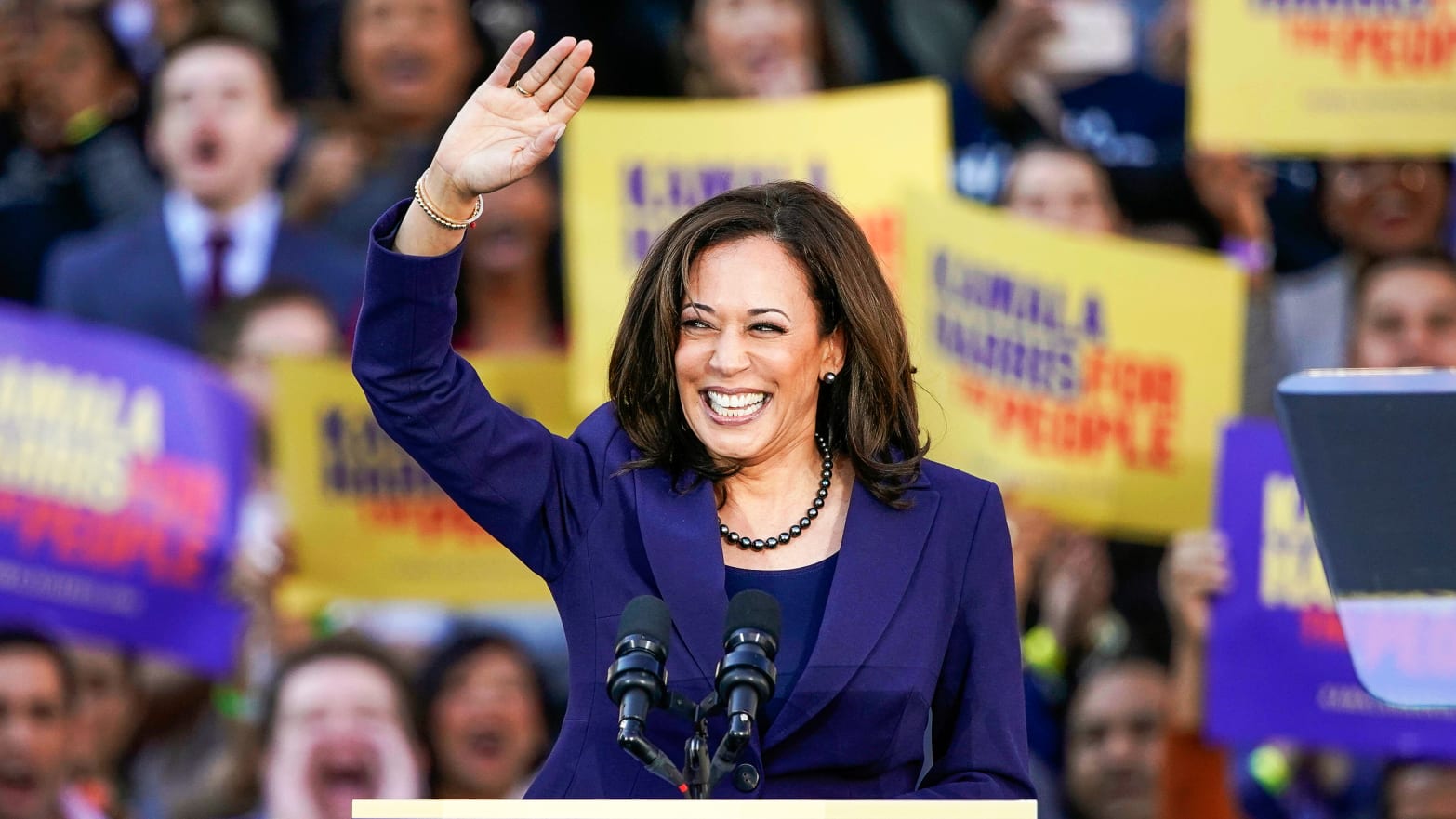Washington, D.C., April 18 – The first woman and first African American to be California’s Attorney General, Sen. Kamala Harris was the first woman of color to enter the 2020 presidential race. If she were to win the presidential election, she would be the first woman president and the first woman of color to sit in the Oval Office.
It is no coincidence that she announced her candidacy on MLK day, as her campaign, much like her career, is focused on civil rights. Her campaign tagline is “of the people, by the people, for all people.” She prides herself in protecting the most vulnerable Americans, as explained in her Senate biography. People with disabilities are, arguably, the most vulnerable members of society. So, naturally, her career and presidential campaign should reflect a continued fight for disability rights. But she still has much room for improvement on disability issues.
Announcement and Campaign Could Be More Inclusive of Disabilities
Harris announced her presidential campaign through every method possible: news interviews, an announcement speech to a large crowd in Oakland, California, and an announcement video on social media. For a candidate to be fully inclusive of the disability community, she must include accurate and descriptive captioning, as well as mention and depict people with disabilities in whichever method(s) she chooses.
People with disabilities comprise 20 percent of our country’s population (and 25 percent of adults in America), and more than half of Americans have a loved one with a disability. A recent survey shows that fully three-quarters of likely voters either have a disability themselves or have a family member or a close friend with disabilities. Thus, for a presidential candidate to represent all Americans, he must include people with disabilities.
Harris’ announcement on ABC News, which now is available on YouTube, offers closed captioning – which is becoming more common among news outlets. Harris made no mention of people with disabilities. However, in her interview with Rachel Maddow on MSNBC, which also includes closed captioning, Harris mentioned people with disabilities in her remarks. She discussed how parents of children with severe disabilities came to Capitol Hill to protest attempts to repeal the Affordable Care Act (ACA). However, she failed to accurately acknowledge that Democrats were successful in defeating the repeal of the ACA in great part due to many adults with various disabilities. Major disability activists and advocacy organizations, who protested for weeks, organized sit-ins at Congressional offices and often were arrested, even pulled from their wheelchairs, in a fight for their lives.

Harris made her announcement speech to a large crowd in Oakland, California, where she stated, “I’m running to be President of the people, by the people and for ALL people.” While Harris discussed many different minority communities in her speech, as was expected given her campaign’s focus on civil rights, she failed to mention people with disabilities specifically. And despite the fact that Oakland is a city known for its high population of people with disabilities, no crowd members with visible disabilities are depicted in the video coverage.
Harris has published several snippets of her speech on Facebook, adding open captioning to each. This is important not only for people who are deaf or hard of hearing but also for the general public, as 85 percent of people watch Facebook videos on mute. Her announcement video also included professional, creative and accurate open captioning, which could only be improved by describing the background music. But she, again, neglected to mention or depict people with disabilities in her video.
Since her announcement, Harris officially launched her website, where she posted a campaign video that discusses her history, her accomplishments and the goal of her campaign, as well as a page dedicated to listing her achievements and record. The video included accurate open captions. But, in both the video and the webpage, she again failed to mention or depict people with disabilities after highlighting other minority communities. Therefore, her message of “for ALL people” might get lost on people with disabilities.
Before Being Elected Senator, Harris Helped People with Disabilities

While Harris did not highlight her commitment to disability rights in her campaign thus far, it is important to note she has a history of recognizing and fighting for people with disabilities. During Harris’ 2016 campaign for U.S. Senator, Harris completed the Disability Questionnaire for senate candidates put out by RespectAbility, a nonpartisan, nonprofit organization fighting stigmas and advancing opportunities for people with disabilities. The Harris campaign response mentioned many achievements she made in the area of disability rights throughout her career, as well as her commitment to supporting legislation that strengthens disability rights in the future.
In 2012, as California Attorney General, Harris represented the California Fair Employment and Housing Commission in a case against the City of Merced’s Fire Department for wrongfully rejecting an applicant due to a perceived disability. Since 2008, Harris’ office regularly attended California Commission on Disability Access to discuss the many ways to improve access for Californians with disabilities in the public and private sectors. She led an investigation into a California school accused of abusing children with disabilities. And she created the Bureau of Children Justice, a division of the California Department of Justice specifically aimed at cracking down on discrimination and inequities in education.
Harris’ Senate Record Includes Many Wins for the Disability Community
On Nov. 26, 2018, Harris signed on to co-sponsor the Disability Integration Act (DIA), keeping the promise she made in 2016. The DIA, a bill introduced by Sen. Chuck Schumer (D-NY) and Rep. Jim Sensenbrenner (R-WI), would require private health insurance to cover long-term care, such as in-home nursing care and personal care attendants for people with disabilities. Many people with disabilities require assistance with activities of daily living such as showering, toileting and dressing. Long-term care coverage permits them to live independently in their own communities.

In December 2018, Harris introduced the Mental Health Telemedicine Expansion Act and the Mental Health Professionals Workforce Shortage Loan Repayment Act, to increase access to mental health services in America. Currently, more than 123 million Americans live in an area with a shortage of mental health professionals. The Mental Health Telemedicine Expansion Act would allow Medicare beneficiaries to receive mental health services through telemedicine from the comfort of their homes, regardless of where they live. And the Mental Health Professionals Workforce Shortage Loan Repayment Act would authorize a new loan repayment program for mental health professionals providing care in a medically underserved area.
On Jan. 29, 2019, Senators Bob Casey (D-PA) and Chris Van Hollen (D-MD) introduced the Competitive Integrated Employment Bill. The legislation is meant to improve existing state disability employment services and phase out sub-minimum wage, which permits employers to pay workers with disabilities below the minimum wage, over a six-year period. The legislation provides state grants and individual competitive grants for employers who already utilize sub-minimum wage to help them transition. And it forbids issuing new sub-minimum wage permits to employers. On March 12, Sen. Harris became the first Senator to co-sponsor this bill. In doing so, she sent the message that people with disabilities deserve equal pay for equal work too.
On Feb. 6, 2019 Sen. Harris and other Democrats introduced the Forcing Limits on Abusive and Tumultuous (FLAT) Prices Act to help prevent sudden, outrageous price hikes for prescription medications. The law will reduce the government-granted monopoly period of 5 to 12 years for these drugs if their prices are increased by 10 percent or more in a year or by similar amounts over multiple years, thereby allowing lower-cost generic drugs to enter the market earlier. Many people with disabilities often rely on costly prescription medications to live. When the price of these medications becomes prohibitive, people with disabilities either forgo or dangerously ration the medication. Thus, this Act could be life-saving for the disability community.
The President for ALL People Needs to Include People with Disabilities

Since Sen. Harris announced to a large crowd, “I’m running to be president of the people, by the people and for ALL people,” her campaign has run on the message that all people are created equal and deserving of civil rights. Harris has a proven track record of fighting for communities in need, including people with disabilities. And she has made a good effort to include the disability community in her work as a Senator and candidate for president. But she could do much more to ensure that every time discrimination, diversity, inclusion and civil rights are mentioned, people with disabilities are included. When one out of every four adults in America has a disability, a president of and by the people needs to ensure that people with disabilities have a true seat at the table.

Be First to Comment